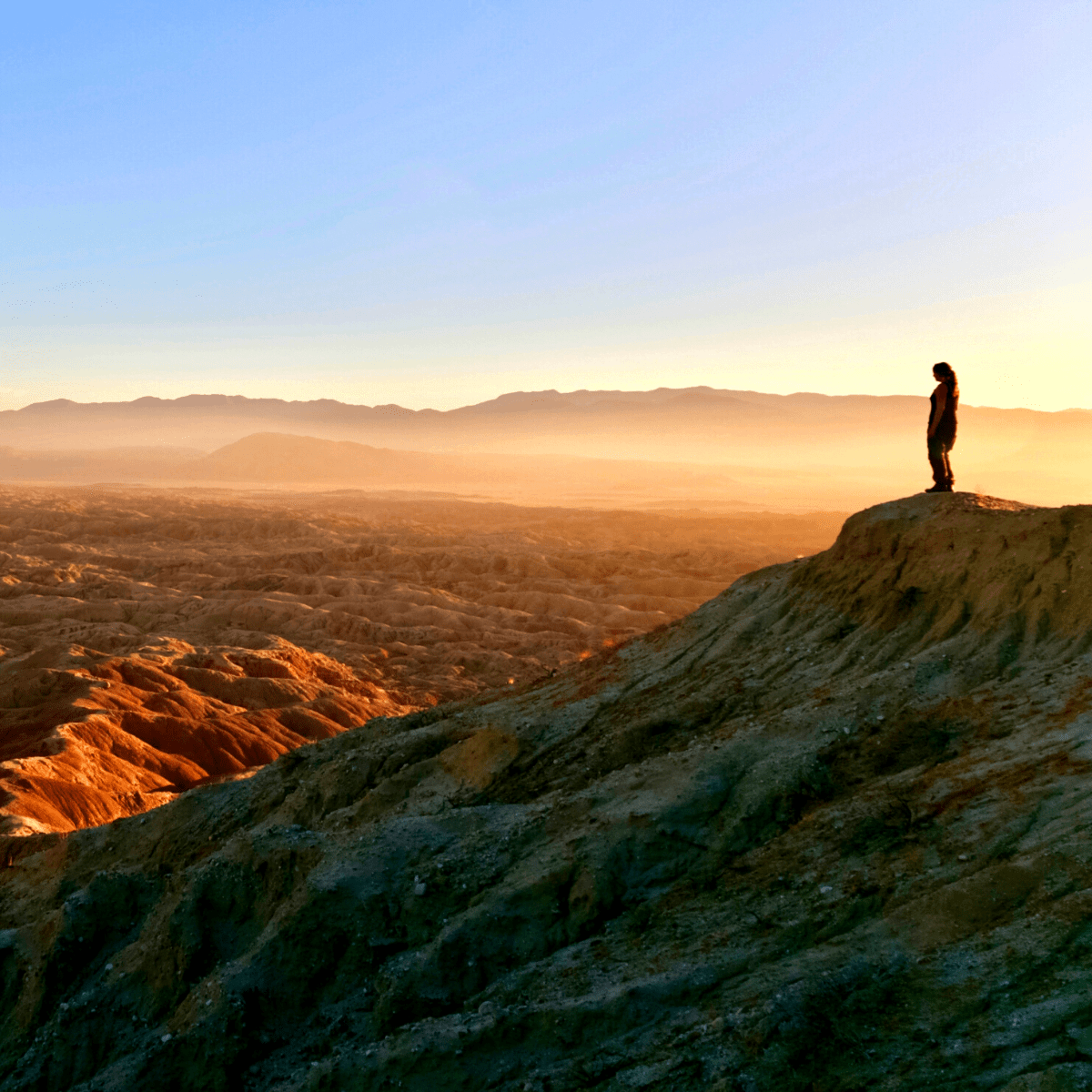
The Anza-Borrego Foundation in partnership with the Leave No Trace Center for Outdoor Ethics has developed a set of 7 principles for responsible visitation at Anza-Borrego Desert State Park in California. These principles include respecting the park’s natural and cultural resources, following Leave No Trace practices, staying on designated trails, being prepared for your visit, respecting wildlife and vegetation, respecting the rights of other visitors, and following park rules and regulations. By following these principles, visitors can help protect the park’s natural and cultural resources and enhance the overall visitor experience.

The 7 principles for responsible visitation at Anza-Borrego Desert State Park are:
1. PLAN AHEAD AND PREPARE
- Know the regulations and special concerns for the area you’ll visit,
including local County and Park COVID-19-specific regulations. - Prepare for extreme weather, hazards, and emergencies.
- Schedule your trip to avoid times of high use.
- Repackage food to minimize waste.
- Use a map and compass to eliminate the use of marking paint, rock
cairns or flagging. - Report any injured wildlife, resource damage, or illegal activities to
Park Headquarters at 760-767-4037.
2. LEAVE WHAT YOU FIND
- Preserve the past, do not touch or disturb cultural and historic
structures and artifacts. - Leave rocks, plants and other natural objects as you find them.
- Avoid introducing or transporting non-native species.
- Do not build structures, furniture, or dig trenches.
3. TRAVEL AND CAMP ON DURABLE SURFACES
- Durable surfaces include established trails and campsites, rock, gravel
or sand. - Protect riparian areas by camping at least 200 feet from dry lakes,
streams and wetlands. - Good campsites are found, not made. Altering a site is not necessary.
- Avoid stepping on vegetation and sensitive desert environment.
- In popular areas:
- Concentrate use on existing trails and campsites.
- Keep campsites small. Focus activity in areas where vegetation is
absent. - In pristine areas:
- Disperse use to prevent the creation of campsites and trails.
- Avoid places where impacts are just beginning
4. DISPOSE OF WASTE PROPERLY
- Pack it in, pack it out. Inspect your campsite and rest areas for trash or spilled foods. Pack out all trash, leftover food, and litter.
- Desert environment is particularly delicate and not suited for
decomposition. For human waste, we encourage the use of WAG
(waste alleviation gel) bags or other portable toilet options to keep
the desert clean. WAG bags can be safely disposed of in regular trash. - All waste, including hygiene products and toilet paper, must be
carried out and disposed in trash bins at home or trash receptacles
provided by the Park.
5. MINIMIZE CAMPFIRE IMPACTS
- Illegal ground fires are prohibited. Campfires are allowed in camper-provided metal containers with bottom and sides, or in Park-provided
metal fire rings in primitive campsites. - Do not collect firewood or dried brush in the Park. Bring firewood
from local County to lower risk of exposure to pests. - Burn all wood and coals to ash. Put out campfires completely.
- Do not burn trash or dispose of trash in fire rings.
- Pack out ashes with you when using a fire pan to leave no trace.
- Keep fires small or consider foregoing a campfire to enjoy the dark
skies in remote areas of our designated “International Dark Sky Park.”
6. RESPECT WILDLIFE
- Observe wildlife from a distance. Do not follow, approach or
otherwise harass wildlife. - Never feed animals. Feeding wildlife damages their health, alters
natural behaviors, and exposes them to predators and other dangers. - Protect wildlife and your food by storing rations and trash securely.
- Do not approach or attempt to move sick o
7. BE CONSIDERATE OF OTHER VISITORS
- Respect other visitors and protect the quality of their experience.
- Be courteous. Yield to other users on the trail.
- Take breaks and camp away from trails and other visitors.
- Let nature’s sounds prevail. Avoid loud voices and noises.
Learn more here: https://www.parks.ca.gov/?page_id=638
Explore Borrego Springs, the gateway to Anza-Borrego Desert State Park. Discover its stunning landscapes, vibrant community, and sustainability-focused growth.
Sign up for our newsletter!
Sign up for our newsletter!
Sign up for our newsletter!
You're All Signed Up!
Please try again later.

